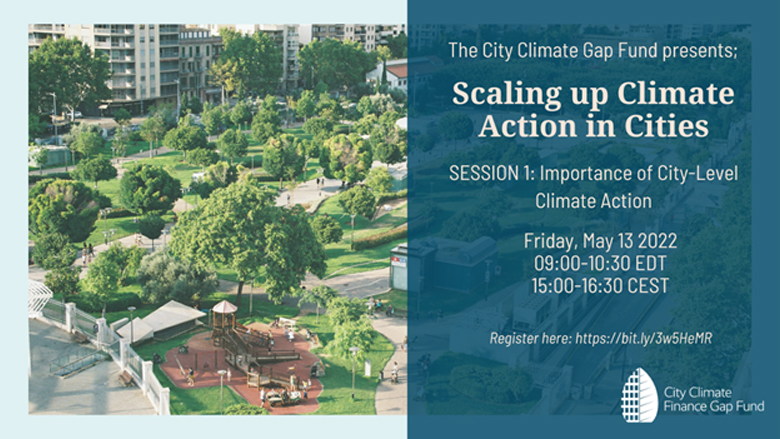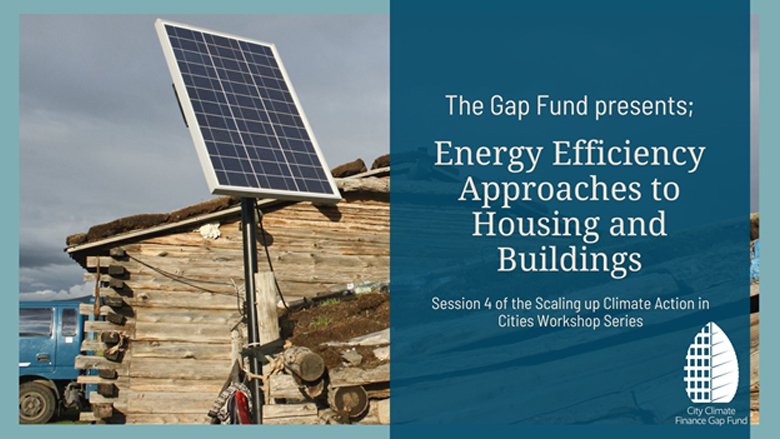Join us for the City Climate Finance Gap Fund workshop series: Scaling up Climate Action in Cities. The series will constitute of five sessions between May - September 2022 where Gap Fund and its partners will host national and local governments, development agencies, city networks, private sector experts and academia providing an opportunity for further collaboration and knowledge exchange. The virtual workshop series will concentrate on developing a deeper understanding on how cities can scale up climate action in key infrastructure systems by moving from low-carbon and climate-smart ideas to climate strategies and investments that address climate mitigation and adaptation challenges.
Speakers, zoom links and more information on the individual sessions can be found within their perspective sections below. The recordings will become available after the series is concluded.

Session 1: Importance of City-Level Climate Action: Key COP26 Takeaways on the Role of Cities
The opening session led by GCOM kicked off the workshop series and featured a leading global technical expert to set the stage on why climate action at the city level is critical for livability, economic growth, and sustainable development.
Session 2: Integrated Urban Planning, Sustainable Urban Transport and Mobility
The session discussed the impacts of urban form on GHG emissions while exploring different approaches to sustainable urban transport and mobility, including transit-oriented development.
Session 3: Integrated Waste Management
This session will explore good and emerging practices in green and inclusive solid waste management (SWM), as well as approaches to achieving to achieving a circular economy.
Session 4: Ener Energy Efficiency Approaches to Housing and Buildings
September 8th
Click here to register for the webinar
This session will introduce citywide tools and approaches to energy efficiency in the buildings sector (residential, public and commercial), including approaches to: (a) retrofitting existing buildings, (b) updating building and energy codes, (c) promoting energy efficient affordable housing, and (d) developing sustainable district heating/cooling systems.



